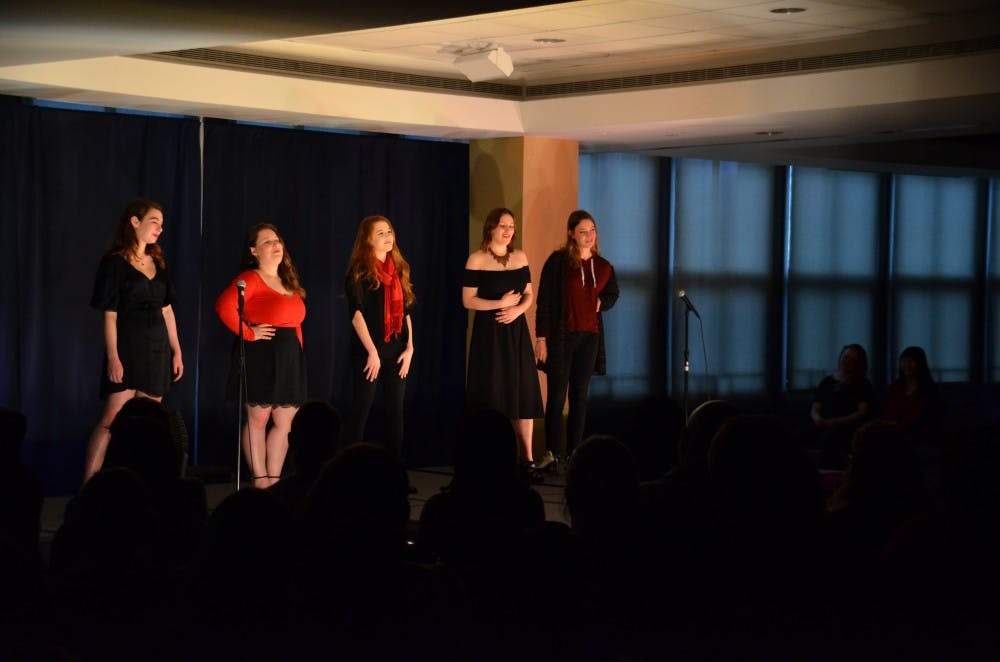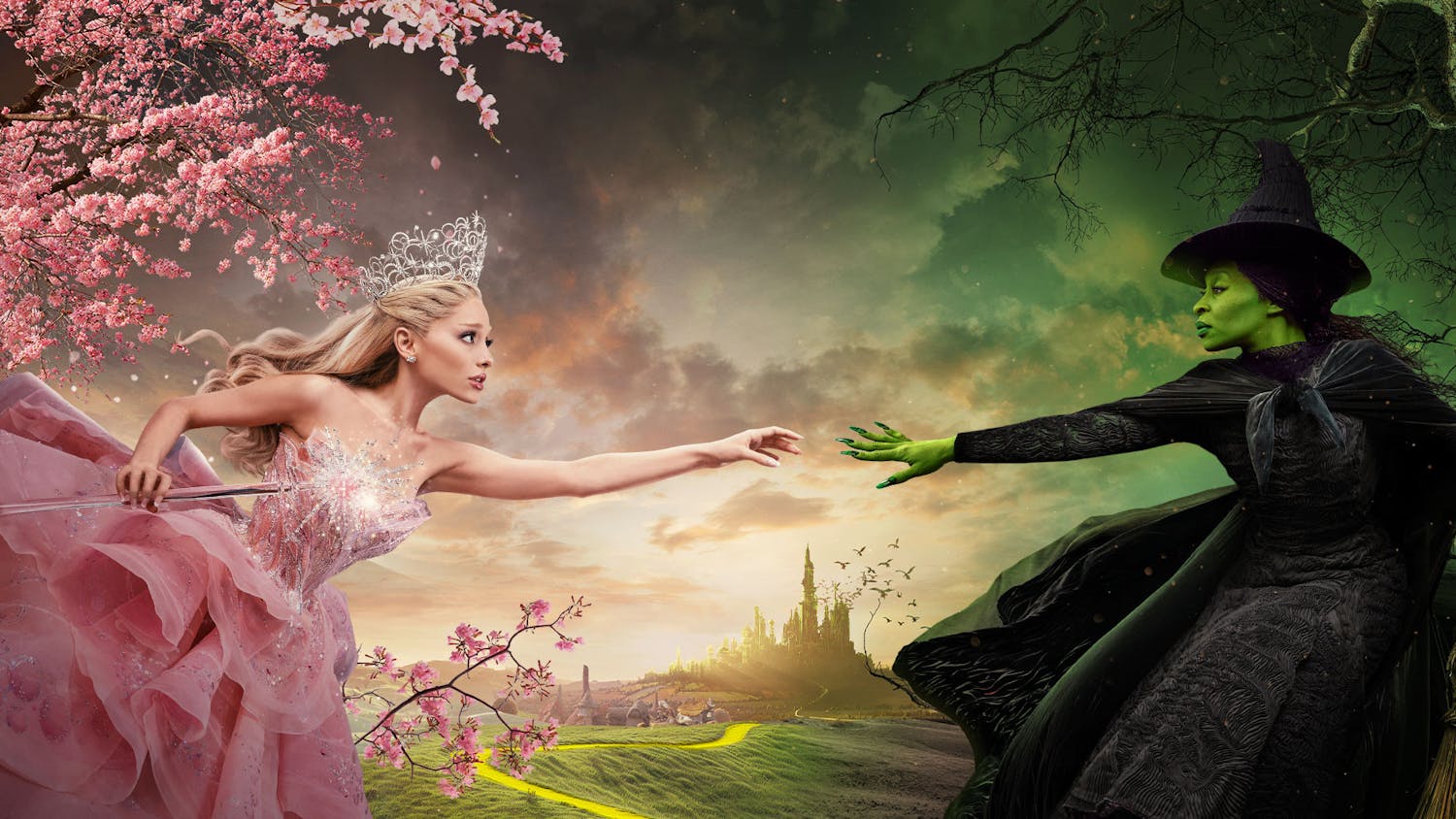If your vagina could talk, what would it say? Eve Ensler attempted to answer this question and others in her interviews with over 200 women which inspired her to write her play, “The Vagina Monologues.” First performed in New York City in 1996, the stories still address issues that are relevant to women today such as infidelity, sexual assault, orgasms and pubic hair.
AU’s annual production of “The Vagina Monologues,” hosted by AUSG Women’s Initiative, took place on the weekend of Feb. 19 through Feb. 21 in MGC 2-5. Directed by students Amanda Swanson and Becca Winchell, the production had a cast of 27 AU students and all three performances sold out. The proceeds from the show are being donated to the Casa Ruby LGBT Center, which Winchell said is particularly important because the center was recently vandalized.
The cast, dressed entirely in red and black, entered the room dancing to Beyoncé’s “Run the World (Girls).” Throughout the show, the cast entered and exited the stage to various girl power anthems. Wearing variations of the same outfit gave the cast a sense of cohesiveness and contributed to a sense of commonality and shared female experiences.
Winchell, a senior in the School of International Service, first joined “The Vagina Monologues” her sophomore year as the stage manager. After two years in that role she said she felt that she had the knowledge, experience and technical know-how to put on a great show.
Because the “Monologues” are performed annually, Winchell said that one challenge is distinguishing each show from the previous year’s production. Last year’s show had a very large cast and the production before that had a small cast, so Swanson and Winchell decided to try something in between.
“During our rehearsal process, we were open to new ideas and approaches to these familiar pieces,” Winchell said. “The women in ‘They Beat the Girl Out of My Boy’ had the excellent idea of adding movement, which gave it a much different feel from previous performances.”
Winchell and Swanson started preparing for the production back in September and the cast started their individual preparations in November. The cast didn’t start rehearsing as a group until January, according to the directors. Winter Storm Jonas presented an unexpected challenge, removing an entire rehearsal weekend from the group’s already short rehearsal period.
The first few monologues were lighter and more comedic in tone, addressing issues like women having never seen their vagina or never experiencing an orgasm. Toward the midpoint of the production, the monologues gradually became darker and more serious as they addressed historical issues like comfort women during World War II and the rape of Bosnian refugees.
Hayat Abu-Ghazaleh, a senior in the College of Arts and Sciences, performed the final monologue in the role of a dominatrix sex-worker who loved moaning but was shushed and made to feel bad about her actions. Abu-Ghazaleh was drawn to her monologue because it pushed boundaries and addressed taboo issues like orgasms, moaning and the idea that men are intimidated by vocal women.
“These women are so empowering,” Abu-Ghazaleh said. “They give me so much strength and inspiration, and they show me what a real woman is from their strength to their vulnerability.”
“The Vagina Monologues” have often been criticized for a lack of diversity and for promoting so-called “white feminism.” A common critique of the “Monologues” is that it doesn’t include many stories on women of color or queer women, and the one portrayal of transgender women comes from a very privileged point of view.
“These critiques are completely valid, and I wish the show dealt with these things better, but it doesn’t,” Winchell said. “But we still perform it because, for all its problems, the show still raises a lot of important issues that women face and allows us to talk about these issues.”
Winchell emphasized that despite some complaints about racial representation, “The Vagina Monologues” tries to inspire women to embrace their individuality and take pride in their identity.
“Mainly, I want the audience coming away from this show feeling more comfortable hearing and talking about vaginas,” Winchell said. “The show starts an important dialogue, but that dialogue can’t happen if people don’t even feel comfortable saying the word vagina.”





